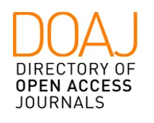The Social Value of the Trust-Truth Bond in a Post-Truth Era
Revisiting Leviathan and Air-Pump
DOI:
https://doi.org/10.24117/2526-2270.2025.i18.05Keywords:
Trust, Truth, Social Epistemology, Post-Truth, Production of FactsAbstract
Shapin and Shaffer’s book offers a socio-historical approach that highlights the inseparable relationship between the processes of producing “true” knowledge and the constitution of the epistemic community that produces and legitimates that knowledge and takes responsibility for it. Such legitimacy and authority are being discredited by phenomena characterized under the label of “post-truth.” The authors present their book as a study that characterizes the debate between Boyle’s “experimentalism” and Hobbes’s demonstrative method, as a response to the problem of assent and social order in the context of the Monarchical Restoration following the Civil War. I find an opportunity to reflect on the foundations of the acceptance of knowledge provided by the natural and social sciences in the current context of the post-truth phenomenon. The strategy is to follow our authors in the issue that has guided their research: How does a (scientific) community that works tirelessly to produce consensus around knowledge describe the knowledge achieved as given, rather than produced? The book reveals an interweaving between truth and trust. This will lead us to discourage dichotomies such as the given and the constructed, individualism-holism, fact-value, and move toward a consideration of “epistemic responsibility” within a communal framework.
Downloads
Published
Issue
Section
License
Copyright (c) 2025 Verónica Tozzi Thompson

This work is licensed under a Creative Commons Attribution 4.0 International License.












